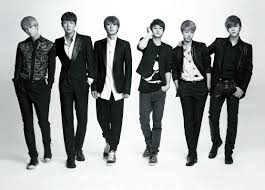中文词源
beast 野兽
来自拉丁词bestia, 野兽,同bestial, 狂野的。
英语词源
- beast
-
beast: [13] Beast replaced deer as the general word for ‘animal’ in the 13th century (deer of course remained in use for antlered animals of the family Cervidae), and was itself replaced by animal in the 17th century. It entered English via Old French beste from Latin bēstia (source of English bestial [14]).
=> bestial - beast (n.)
- c. 1200, from Old French beste "animal, wild beast," figuratively "fool, idiot" (11c., Modern French bête), from Vulgar Latin *besta, from Latin bestia "beast, wild animal," which is of unknown origin. Used to translate Latin animal. Replaced Old English deor (see deer) as the generic word for "wild creature," only to be ousted 16c. by animal. Of persons felt to be animal-like in various senses from early 13c. Of the figure in the Christian apocalypse story from late 14c.
权威例句
- 1. Disney's "Beauty And The Beast" has won rave reviews.
- 迪斯尼出品的电影《美女与野兽》赢得了众多好评。
- 2. Bully! Hooligan! Beast! Let me go, let go!
- 混蛋!流氓!王八蛋!放开我,放开!
- 3. This man is an animal, a beast.
- 这人是个畜生,是个野兽。
- 4. The unicorn is an imaginary beast.
- 独角兽是幻想出来的动物.
- 5. When he's drunk, he's a beast.
- 他喝醉时很野蛮.

